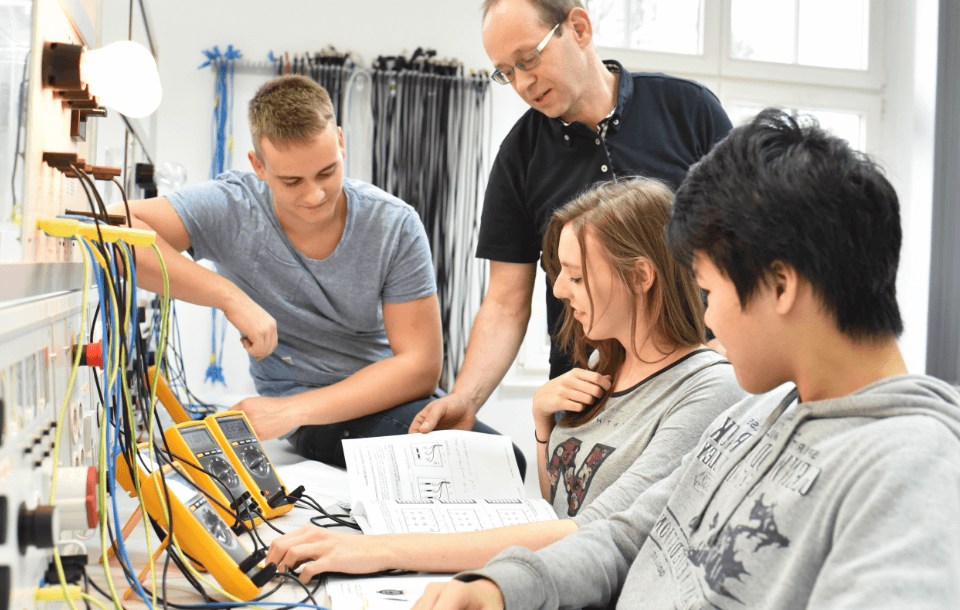Don't Be Discouraged: The Quiet Power of Career Conversations
If you've ever had a career conversation with a young person, chances are you've experienced moments when students seem quiet, reserved, or even...
HIEC Network
About HIEC
Ontario Career Lab is powered by HIEC, a not-for-profit social enterprise with a focus on partnership, mentorship and workforce development.
When you think back to high school, chances are you remember being asked the same question over and over again: “What do you want to be when you grow up?” For many students, this question feels overwhelming, as if they should already have life figured out before they've even received their diploma.
The truth? Career development is not a single decision—it’s a lifelong journey. It’s about blending learning, work, volunteerism, and even leisure into a unique path that reflects your interests, values, and goals. Yet, most students graduate without being told the most important lessons about building a career. Here’s the career advice no one gave you in high school—but should have.
High school can make success feel linear: get good grades, get into university, land a good job, and everything will fall into place. But real life doesn’t work that way. Career development is a dynamic, evolving process that requires continuous learning, adapting, and reflecting.
The activities you engage in as a student—clubs, part-time jobs, volunteer work—aren’t just ways to pass the time or build your resume. They’re part of a larger process of discovering your skills and passions. The sooner you start seeing your experiences as stepping stones, the more empowered you’ll feel in shaping your career path.
Here’s a secret: Most adults don’t have their careers fully mapped out, either. High school often pressures students to make definitive choices based on limited experiences. You might think, “I like debating, so I should be a lawyer” or “I enjoy helping people, so I should be a doctor.”
In reality, those interests could lead to dozens of different career paths you haven’t even heard of yet—fields like mediation, policy analysis, or social work. You don’t need all the answers right now. What you need are clear next steps and the freedom to explore.
There’s a common myth that university is the “best” path to success. In reality, there are many pathways, and each offers unique opportunities for growth and fulfillment. Apprenticeships, college programs, entrepreneurship, or direct entry into the workforce can all lead to rewarding careers.
It’s important to define success on your own terms. Whether it’s working with your hands, creating art, or leading teams, your career path should align with your values and passions.
Have you ever been told that your hobbies—like gaming, photography, or creative writing—aren’t “realistic” career options? That’s simply not true. The skills you build through your interests can translate into marketable job skills.
For instance, gaming can lead to careers in game design, programming, or even eSports. Creative arts can open doors in marketing, content creation, or graphic design. If something excites you, don’t dismiss it—explore how those passions could shape your future career.
Sometimes, figuring out what you don’t enjoy is just as valuable as knowing what you do. Every job, volunteer role, or school project teaches you something about your preferences, strengths, and limitations.
Disliking a subject or a job doesn’t mean you’ve failed—it means you’ve narrowed your focus and gained clarity. The earlier you identify what doesn’t resonate with you, the closer you’ll get to finding meaningful work that fits your unique strengths.
Many people define success by high salaries, prestigious job titles, or social status. But true success is personal. It’s about finding work that aligns with your values, fits your lifestyle, and brings you fulfillment.
For some, that could mean launching a business; for others, it could be working in public service or creating a healthy work-life balance. There’s no one-size-fits-all definition of success—it’s about what matters most to you.
Life rarely unfolds in a straight line. Detours, changes, and unexpected opportunities are all part of the journey. Many people switch careers multiple times, go back to school later in life, or discover new passions they never considered before.
Rather than trying to follow a perfect plan, embrace flexibility. Be open to change and stay adaptable—it’s often those unexpected turns that lead to the most rewarding outcomes.
While your career journey is ultimately your own, you don’t have to walk it alone. Educators, mentors, family, peers, and even online communities can provide valuable guidance and support. Don’t be afraid to ask questions, seek advice, or connect with professionals in your fields of interest.
Reading this, you might be thinking, “I wish someone had told me this back in high school.” You’re not alone—most of us didn’t get this kind of advice when we needed it most. But here’s the good news: It’s not too late to start. Career development is a lifelong journey, and no matter where you are right now, you can still take meaningful steps forward.
For a lot of young people, talking to adults about their career can be stressful. The pressure to make big decisions early, the uncertainty of fast-changing job markets, and not knowing themselves well enough yet can create anxiety. Fear of making the wrong choice, combined with academic and social pressures, often leaves them feeling overwhelmed. With limited real-world exposure to various industries, many are unsure what paths even exist, adding to the worry about their future.
But what if career exploration started with a conversation that didn’t create anxiety but instead sparked ideas, built confidence, and opened doors to the future?
That’s exactly what we’re trying to do with the Ontario Career Lab—an initiative designed to inspire Ontario’s Grade 9 and 10 students by connecting them with community professionals from all industries, occupations and backgrounds. Through meaningful career conversations, students can explore in-demand industries, discover local opportunities, and begin to shape their own unique paths.
Funded by the Government of Ontario, this first-of-its-kind initiative is more important than ever.
It’s clear: career conversations are so much more than just talking about jobs—they spark a chain reaction of positive change.
We’re looking for individuals from a wide range of sectors who share their personal insights and real-world experiences.
Your career story can inspire and ignite curiosity in our students. By sharing your experiences, you’ll help broaden their perspective on the world of work, connect with fellow community members, and play a vital role in shaping the next generation.
Ready to make a difference? Sign up today to join the conversation.

If you've ever had a career conversation with a young person, chances are you've experienced moments when students seem quiet, reserved, or even...

For a lot of young people, talking to adults about their career can be stressful. The pressure to make big decisions early, the uncertainty of...

At HIEC, we’ve spent decades creating spaces where young people can explore their career pathways through mentorship, networking, and career coaching...